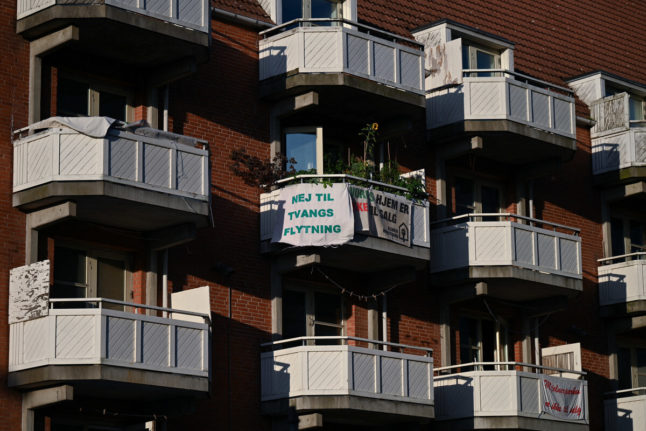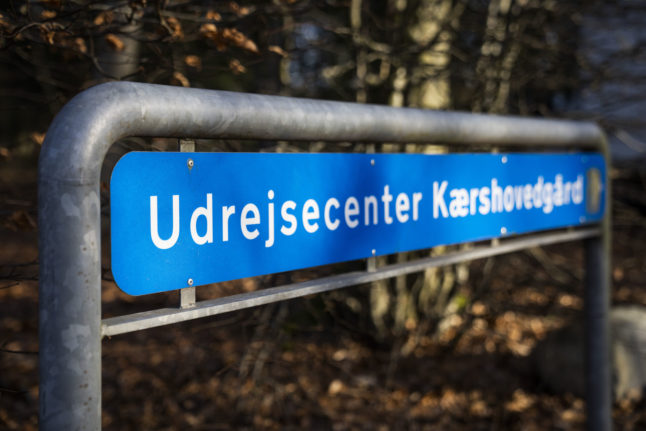“It’s straight up racism,” said Jawad, a doctor from Mjølnerparken in central Copenhagen, which is surrounded by rapidly gentrifying areas.
“Even though I was born and raised in Denmark, in the statistics I’m a non-Western immigrant,” the 29-year-old told AFP.
In official figures and documentation, Denmark categorises people considered not of Danish heritage into two groups: ‘immigrants’ and ‘descendants’ of immigrants (‘efterkommere’ in Danish).
A person is considered to have Danish heritage if she or he has at least one parent who is a Danish citizen. People defined as ‘immigrants’ and ‘descendants’ do not fulfil those criteria. The difference between the two is that an ‘immigrant’ was born outside of Denmark, while a ‘descendant’ was born in Denmark.
Immigrants from all EU countries, along with Andorra, Australia, Canada, Iceland, Liechtenstein, Monaco, New Zealand, Norway, San Marino, Switzerland, the United States, the United Kingdom and the Vatican are considered ‘Western’. Everywhere else is ‘non-Western’.
Denmark passed a controversial law in 2018 to redevelop poor urban “ghettos” with high concentrations of immigrant populations by 2030. It has since changed its official terminology, dropping the use of the loaded word “ghetto” and replacing it with “parallel society”.
READ ALSO: ‘I’m doing everything right to get Danish citizenship and it’s not enough’
Still in effect today, the 2018 law involves rebuilding and renovating rundown estates and changing the social mix by renting at least 60 percent of the homes at market rates.
For decades Denmark has had one of Europe’s most restrictive immigration policies, with populist right-wing parties often stoking anti-immigrant rhetoric.
“Our apartments are not for sale!” said banners strung across Mjølnerparken, with locals saying that using their ethnicity to decide where
they can live is discriminatory and illegal.
Eight out of 10 people in Mjølnerparken are deemed “non-Western”, with people from non-EU countries in the Balkans and Eastern Europe also falling into that category.
The Mjølnerparken residents are suing Denmark, with European Court of Justice due to rule in the coming months.
READ ALSO: Denmark’s ‘ghetto plan’ unlikely to solve problems faced by underprivileged areas: residents (2018)
Thomas Monberg, spokesman on housing issues for the ruling left-wing Social Democrats, insisted that the aim of the law — which will compel 11,000 people to move — is good.
“We don’t want to force people out,” he said.
“We want to give them a better life so they can have the same opportunities as any other Dane,” he told AFP.
But for Jawad, whose parents were born in Pakistan, the so-called “ghetto law” is emblematic of Denmark’s relationship with immigrants.
Instead of improving integration, it has left many feeling hopeless.
“A lot of people here have just given up hope of the government actually being on their side,” he said.
The law aims to eradicate “parallel societies” in poor neighbourhoods that. often struggle with crime.
This means that 295 of Mjølnerparken’s 560 homes will have to be replaced by market-rate rentals — which are out of reach for most locals.
READ ALSO: Danish court rejects tenants’ discrimination appeal against eviction
Experts say some 11,000 people across Denmark will have to leave their apartments and find new housing elsewhere in the next seven years.
Majken Felle, the head of Mjølnerparken’s renters’ association, said that before the law was passed residents had agreed to be temporarily relocated to
allow the renovation of their apartments.
Even if they could afford to return after the work, they’ve been strongly encouraged not to, she said.
To avoid being moved around several times, many agreed to leave the neighbourhood, which is surrounded by some of Copenhagen’s most desirable
areas.
“Even if they want to stay, some families said to themselves, ‘There’s too much uncertainty, I can’t live like this for years. Maybe it would be better to move and get on with my life,'” Felle added.
‘Second class citizens’
“Residents are living in a construction site even though they’re paying rent, it’s scandalous,” said Hassan, a 25-year-old raised in Mjølnerparken, who left because of the renovation work but wants to move back once it is done.
The “ghetto” law is in stark contrast with Denmark’s image as “an egalitarian, democratic society with strong social and economic systems,” said
Susheela Math, a lawyer from the Open Society Justice Initiative which is helping residents bring their case.
Yet in this wealthy Scandinavian nation, their fight has gone largely ignored.
“Eighty percent of the Danish population doesn’t have any personal contact with ethnic minorities,” said sociologist Aydin Soei, an expert on disadvantaged areas, “and an even smaller number of Danes have set foot in one of these areas.”
Rather than helping integration, he argued, the law had left many feeling like “second-class citizens”.



 Please whitelist us to continue reading.
Please whitelist us to continue reading.
Member comments